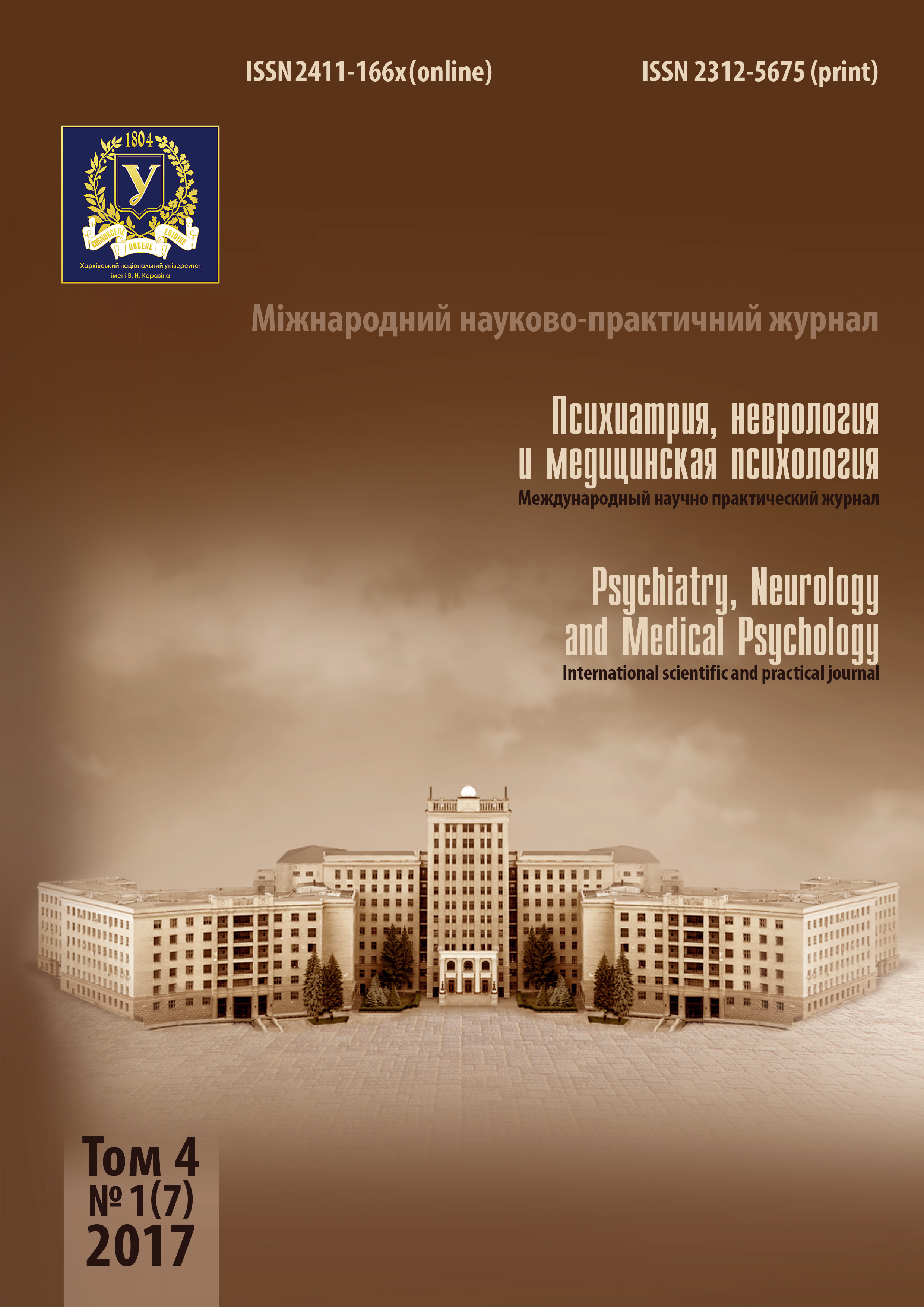Anti-Sociale Personality Disorders: Problems Of Theory And Practice
Abstract
The article from the clinical and nosological perspective concerns the «pros and cons» of whether to include dissocial disorder into the classification of personality disorders as the one which is reliably clinically homogeneous. The diversity of dissocial disorder is reasonably justified, with abnormal personality types included in this diversity, and in case of failure of the differential diagnosis and the mentally ill with unexpressed forms of endogenous and exogenous diseases are also included. But in addition, it should be noted that the crimes committed by the so-called normal or accentuated personalities too. The author believes that the common sense and scientific approach should prevail. Despite, for example, the proportion of patients with schizophrenia (we note with its different forms and types of flows) is leading antisocial lifestyle or inclined to commit unlawful acts, isn’t dissocial form of schizophrenia sorted out? The same question can be put in relation to patients with epilepsy, organic brain damage, and others
Downloads
References
Смулевич А. Б. Расстройства личности (психопатии) / А. Б. Смулевич // Руководство по психиатрии : в 2-х т. / под ред. А. С. Тиганова. – М. : Медицина, 1999. – Т. 1. – С. 558–606.
Психические расстройства (раздел V «Международной статистической классификации болезней, травм и причин смерти 9-го пересмотра», адаптированный для использования в СССР). – М., 1982. – 82 с.
Ганнушкин П. Б. Избранные труды / П. Б. Ганнушкин. – М. : Медицина, 1964. – 292 с.
МКБ-10. Классификация психических и поведенческих расстройств: Исследовательские диагностические критерии / ВОЗ. – Женева, 1996. – 208 с.
Леонгард К. Акцентуированные личности / К. Леонгард ; пер. с нем. – К. : Выща школа, 1981. – 392 с.
Шостакович Б. В. Клинические варианты расстройств личности (психопатические расстройства) / Б. В. Шостакович // Пограничные психические расстройства / Ю. А. Александровский. – М. : Медицина, 2000. – 496 с. – С. 189–215.
Простомолотов В. Ф. Шизоидное расстройство личности по МКБ-10 и шизоидная психопатия Кречмера: сравнительное клиническое сопоставление и особенности биологической и психической психотерапии / В. Ф. Простомолотов // Журн. «Психиатрия, неврология и медицинская психология. – 2014. – Т. 1, No1. – С. 25–33.
Copyright (c) 2017 Валерий Федорович Простомолотов

This work is licensed under a Creative Commons Attribution 4.0 International License.

